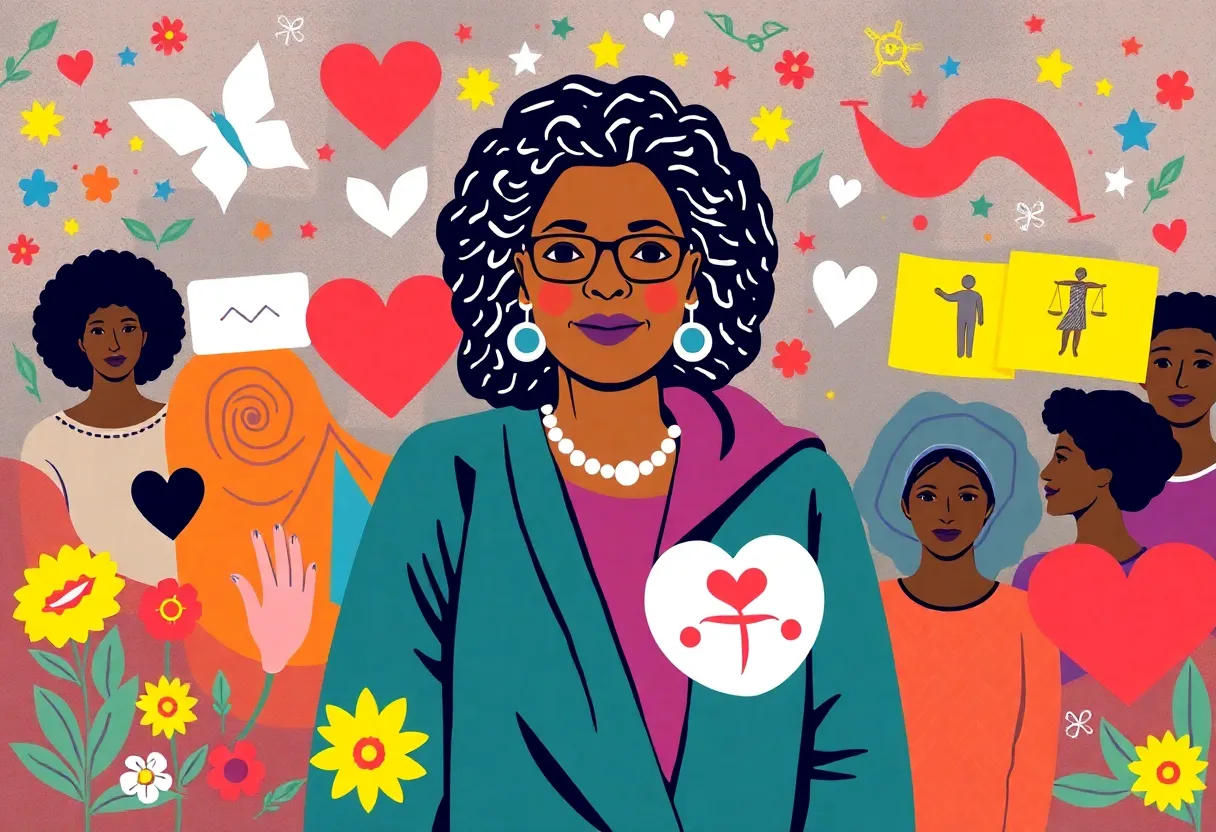News Summary
The Black Women Lead project calls on Boston to honor Dr. Dorothy Celeste Ferebee, a trailblazing obstetrician and civil rights activist. Despite her significant contributions to healthcare and social justice, her legacy remains unrecognized in the city. Dr. Ferebee’s impactful work included providing healthcare in marginalized communities and advocating for women’s education and health rights. It’s time for Boston to celebrate this unsung heroine.
Boston Urged to Honor a Forgotten Heroine: Dr. Dorothy Celeste Ferebee
Boston has long been known for its rich history and cultural significance, but it seems there’s an unsung hero whose legacy still remains in the shadows. The Black Women Lead project has issued a heartfelt call to recognize women who have broken barriers, especially focusing on the incredible impact of Black women throughout history. At the forefront of this push is none other than Dr. Dorothy Celeste Ferebee, an obstetrician and civil rights activist whose contributions to healthcare and social justice deserve recognition.
A Trailblazer from the Start
Born as Dorothy Boulding in Norfolk, Virginia, this phenomenal woman moved to Boston as a child, quickly falling in love with the vibrant community around her. She attended local schools and graduated at the top of her class from The English High School in 1915. But Dr. Ferebee wasn’t just another bright student; she was destined for greatness. After graduating from Simmons College in 1920, she went on to earn her degree from Tufts University School of Medicine in 1924, landing among the top five students. Let’s just say, she was on fire!
Facing Adversity Head-On
Unfortunately, Dr. Ferebee faced her fair share of challenges when she tried to become a medical intern. With her applications being tossed aside from white hospitals in Boston—essentially shutting her out because of her race—she made the courageous decision to move to Washington, D.C. There, at the Freedmen’s Hospital—a Black-owned institution—she began her internship and became a vocal advocate for contraception and sex education for women, paving the way for future generations.
Building a Legacy of Care
In 1925, Dr. Ferebee took another bold step by establishing her own clinic in a needy area of Washington, D.C. This was no small feat, considering the struggles that came with providing healthcare in marginalized communities. Her passion for social justice didn’t stop there; she successfully persuaded the trustees of Friendship House to open a clinic for African Americans, aptly named Southeast Neighborhood House. She even founded the Southeast Neighborhood Society, which provided playgrounds and daycare for working mothers, recognizing that their needs went far beyond medical care.
A Leader and Advocate
By 1930, Dr. Ferebee was not just a doctor but also a pioneering leader. She married Claude Thurston Ferebee and joined the faculty at Howard University Medical School. From 1935 to 1942, she spearheaded the Mississippi Health Project, immunizing over 15,000 Black children against smallpox and diphtheria. Talk about making a difference!
National Impact
In 1949, Dr. Ferebee became the second president of the National Council of Negro Women (NCNW), focusing on healthcare, education, and fighting discrimination. Her tireless efforts addressed systemic inequities that impacted African Americans—especially women and children. Not just satisfied with local contributions, she took her fight for social justice to an international level, representing the U.S. at various global conferences and collaborating with UNICEF. She truly exemplified the spirit of advocacy and public service.
Boston’s Missed Opportunity
With such a significant legacy, it’s astonishing that Boston has yet to honor Dr. Ferebee. To date, there are no buildings, schools, or parks named in her memory. Acknowledging her contributions could not only shed light on the rich tapestry of Black women’s history in the city but also serve as an educational tool for future generations.
Inspiring Future Generations
Recognizing Dr. Ferebee’s legacy could inspire young women, particularly girls of color, to pursue careers in fields where they are still underrepresented. It could also reignite the community’s commitment to social justice, emphasizing the crucial impact that pioneers like Dr. Ferebee have made. Her lifetime of work dedicated to improving health and living conditions in marginalized communities deserves to be preserved and celebrated.
So here’s the call to action: Boston has an opportunity to honor Dr. Dorothy Celeste Ferebee and ensure her name and legacy are etched into the city’s history for generations to come. Let’s not let her remarkable story slip away into the pages of obscurity!
Deeper Dive: News & Info About This Topic
HERE Resources
Additional Resources
- Boston Herald: Gaskin urges Boston to honor Dr. Ferebee
- Washington Post: Dorothy Boulding Ferebee
- Washington Post: Image resource
- Washington Post: Dr. Dorothy Ferebee dies
- The Shadow League: Distinguished women of Alpha Kappa Alpha
- Wikipedia: Dorothy Ferebee
- Google Search: Dr. Dorothy Ferebee
- Google Scholar: Dr. Dorothy Ferebee
- Encyclopedia Britannica: Dorothy Ferebee
- Google News: Dr. Dorothy Ferebee








